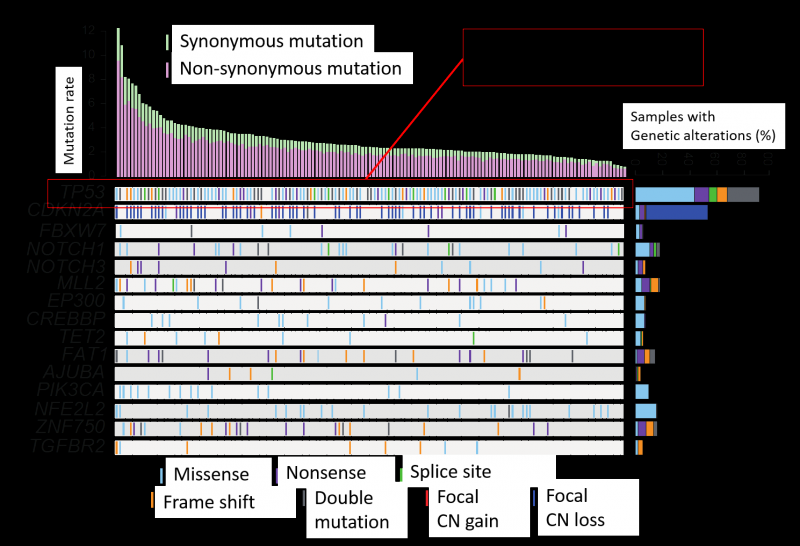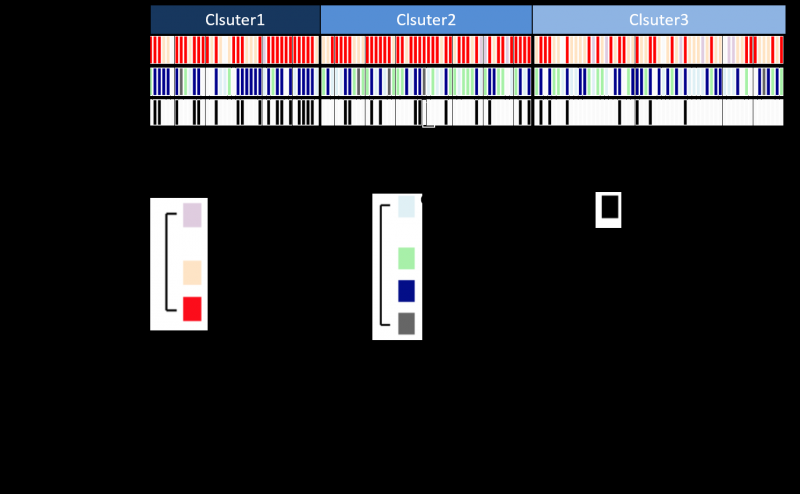Discovery of the genes responsible for esophageal cancer

A Japanese research group has discovered the genetic mutations responsible for esophageal cancer frequently found among Japanese people. They base their discovery on a genomic analysis of 144 Japanese esophageal cancer patients, the largest study of its scale so far. The study findings are expected to contribute to the development of new medical treatments with fewer side effects and tailored drug therapies.
The most common types of esophageal cancer are glandular cancer and squamous cell cancer. Glandular cancer is the main type of esophageal cancer found in Western countries. In contrast, esophageal squamous cell cancer (ESCC) constitutes more than 90 percent of cases in Japan. The research group has now identified 15 genes that are thought to be especially associated with ESCC of Japanese people. These results are based on a detailed survey of the lifestyle habits of 144 Japanese ESCC patients and the so far largest genomic analysis using a supercomputer. This analysis also enabled the researchers to identify the patterns of genetic anomaly that are characteristic of esophageal cancer suffered by people with genetically linked low levels of alcohol-metabolizing enzyme activities.
The detailed analysis of both Japanese patients' genes as well as lifestyle habits provided evidence that esophageal cancer is influenced by both environmental (alcohol consumption, smoking) and genetic factors (levels of alcohol-metabolizing enzyme production). The researchers were also able to distinguish between three groups of ESCC: The first group is found with patients who carry a higher esophageal cancer risk due to drinking and smoking, the second group with patients carrying higher risks due to drinking alone and the third group with patients whose cancer risk is not associated with drinking or smoking.
The important finding of genetic anomalies in Japanese ESCC patients will open up new pathways in developing medical treatments targeted at these genetic anomalies. This has the potential to make cancer treatment more efficient and tailored to the individual patient compared to conventional cancer drugs that sometimes cause severe side effects by blindly attacking cells.

More information: Genta Sawada et al. Genomic Landscape of Esophageal Squamous Cell Carcinoma in a Japanese Population, Gastroenterology (2016). DOI: 10.1053/j.gastro.2016.01.035


















